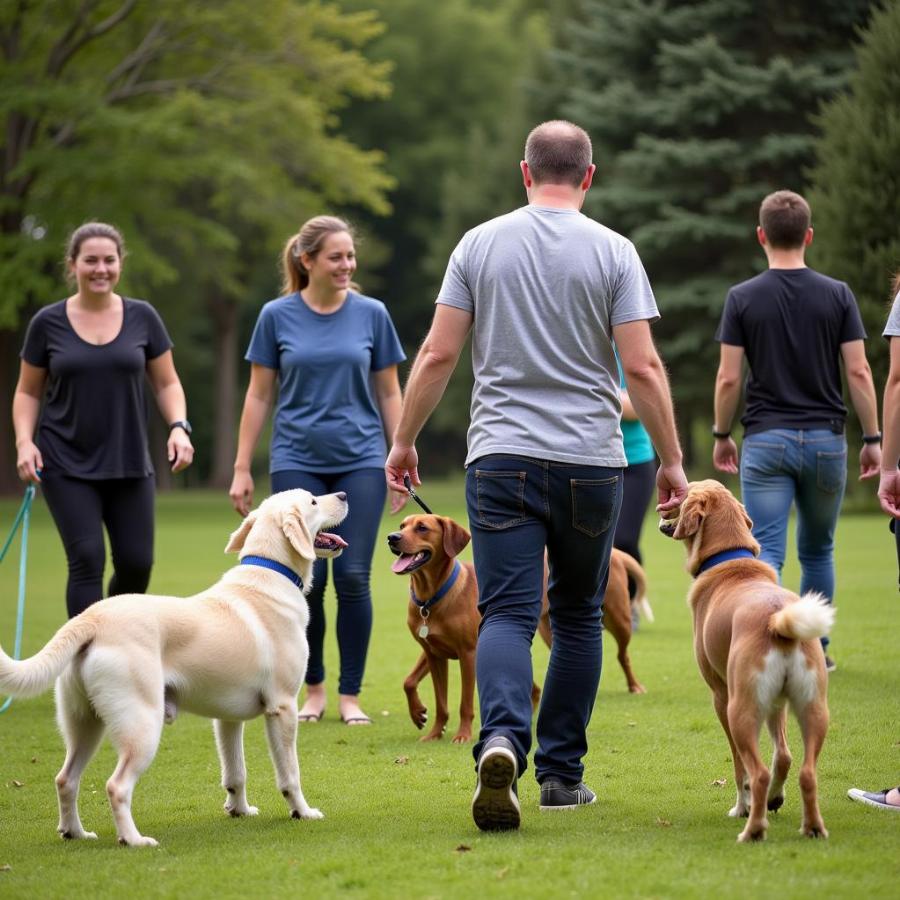When you think of scary dog breeds, images of fierce canines with powerful jaws and intimidating stares might come to mind. While it’s true that some breeds have a more imposing presence than others, labeling an entire breed as “scary” is often unfair and inaccurate. A dog’s temperament is influenced by a complex interplay of genetics, upbringing, environment, and socialization.
Debunking the Myth of “Scary” Dog Breeds
It’s important to remember that every dog is an individual. Just like humans, dogs have unique personalities, and judging them solely based on their breed can lead to misconceptions. Many breeds historically labeled as “scary” were originally bred for specific purposes, such as guarding or protection. While these instincts might be present, responsible breeding practices and proper socialization play a crucial role in shaping a dog’s behavior.
Understanding Breed Characteristics and Temperament
Instead of focusing on fear-based labels, let’s delve into understanding breed characteristics and temperament. It’s essential to research and choose a breed that aligns with your lifestyle, experience level, and living situation. For instance, while a Rottweiler can make a loyal and loving companion, their size and strength require an owner who can provide consistent training and socialization.
Factors Influencing a Dog’s Behavior
While genetics plays a role in a dog’s predisposition, early socialization is paramount in shaping their behavior. Exposing puppies to various sights, sounds, people, and experiences helps them develop into well-adjusted adults. Consistent training, positive reinforcement, and providing a loving and stimulating environment are crucial for any dog, regardless of breed.
 Group Dog Training Class
Group Dog Training Class
Responsible Dog Ownership: It’s Not About the Breed
Ultimately, responsible dog ownership is about understanding the commitment involved in providing for a dog’s physical, emotional, and social needs. Regardless of breed, every dog deserves a loving home, proper care, and the opportunity to thrive. By focusing on responsible ownership, we can move away from harmful stereotypes and appreciate the unique qualities of all dogs.
FAQs about Scary Dog Breeds
Q: Are certain dog breeds more likely to bite?
A: While some breeds might have a stronger bite force, any dog can bite if they feel threatened or provoked. Proper training and socialization are crucial in preventing aggression.
Q: Can a “scary” dog breed be a good family pet?
A: With responsible ownership, many breeds often labeled as “scary” can be loving and gentle family companions. It’s essential to consider the individual dog’s temperament, history, and your family’s lifestyle.
Q: What should I do if I encounter a dog I perceive as scary?
A: Remain calm, avoid direct eye contact, and slowly move away. If the dog appears aggressive, do not run. Contact the owner or animal control if necessary.
Looking for More Information on Dog Breeds and Care?
Check out our other articles on black scary dog, vpcs in dogs, and scariest breeds of dogs for more in-depth information.
Need Help with Your Furry Friend’s Health?
If you’re concerned about your dog’s health or behavior, don’t hesitate to seek professional help. You can find resources on dog liver enzymes elevated or learn what to do if my dog ate weed on our website.
About Beaut Dogs
Beaut Dogs is your trusted source for all things dog-related. We’re dedicated to providing insightful and reliable information to help you become the best dog owner you can be. For personalized advice and support, reach out to us at [email protected].